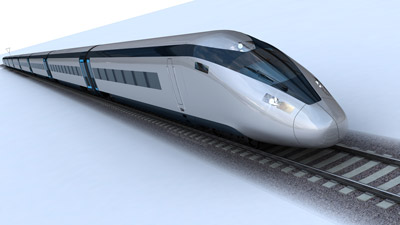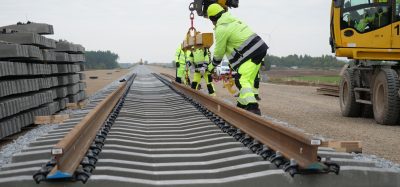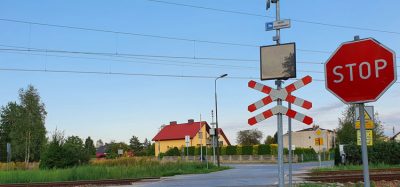Should we go ahead with HS2?
Posted: 16 March 2017 | | 12 comments
Regular Global Railway Review blogger, Graham Ellis, delves into the subject of high-speed train lines, specifically HS2.


HS2 concept train


As a transport professional; I am becoming fed up with people asking me to justify high-speed rail in the UK. Following the Royal Assent for the HS2 project, lots of people keep telling me that this is a white elephant and should never have been considered as it only benefits travellers from London to parts of the North and is a detriment to those living on the route of the new line.
In some ways they are correct in that it will benefit passengers out of London but, what they have not realised is that our rail network is at capacity and if we want to get freight off the roads then the railways are currently the only viable option to that. When I explain to them that the building of HS2 will relieve both the East and West coast mainlines to allow more freight paths they start to see a reasonable approach to our infrastructure but are still worried about the cost implication. However, if we look back into history it is clear that many pioneering engineering projects faced massive public criticism, whether it was James Brindley building canals, the Stephensons building their rail networks across the North and then down into London or even Isambard Kingdom Brunel building the Great Western Railway from London to Bristol - whatever was proposed was railed against until work actually started and the benefits of the new mode of transport was experienced.
What is HS2?
The initial plan is for a new railway line between London and the West Midlands carrying 400m-long (1,300ft) trains with as many as 1,100 seats per train. They would operate at speeds of up to 250mph – faster than any current operating speed in Europe – and would run as often as 14 times per hour in each direction.
This would be followed by a v-shaped second phase taking services from Birmingham to Manchester and Leeds. The Department for Transport says there will be almost 15,000 seats an hour on trains between London and the cities of Birmingham, Manchester and Leeds – treble the current capacity.
When will it open and how much will it cost?
The first phase of the £56 billion railway is due to open in December 2026, with trains to travel at high speed between London and Birmingham before continuing on the existing West Coast Main Line. But earlier this year, the Public Accounts Committee cast doubts on this deadline calling it “overly ambitious”.
The onward legs to Manchester and Leeds could start being built in the middle of the next decade, with the line open by 2032-’33. In June 2013 the government revised the cost of the project upwards, due to an increase in the amount of tunnelling required on the route. This took the estimated budget from £32.7 billion to £42.6 billion at present values – with the cost of phase one increasing from £16 billion to £22 billion.
Looking at the cost aspect, then there is some concern. A recent parliamentary report from the public accounts committee reported that the electrification of the Great Western Line had a number of problems, and that both Network Rail and the Department for Transport had to take note of the following:
- Network Rail must ensure that all risks to the project are identified, monitored and controlled and use this information to identify with the Department the critical path for the whole modernisation programme, setting out how the infrastructure, new trains and planned services will interact with each other by March 2017.
- Network Rail must improve its ability to produce realistic cost estimates, including making greater use of data from completed projects. Network Rail must make sure that robust and detailed plans, including a critical path, are in place for infrastructure projects before starting construction works and consider whether an Order under the Transport and Works Act would be preferable to multiple individual planning consents and other approvals.
- The Department and Network Rail need to ensure that they plan major developments to rail services in a way which brings together trains, infrastructure work and the operation of services. As part of this, they should obtain independent assurance on the deliverability of their plans. We will expect to see this approach on forthcoming major programmes including the Midland Main Line and TransPennine upgrades [and I suspect HS2].
So should we go ahead with HS2? I think we should. Network Rail has stated that the West Coast Mainline will effectively be full by 2024 with no further room for expansion of services along that corridor. With the pressure on the Government to reduce pollution there is a need to reduce road traffic and rail is the only way to provide a viable solution to that problem. It has been suggested in some quarters that air travel could be an option but that just does not stack up, apart from the long wait times before boarding a plane there is also the need to get to and from airports.
Let me give you an example, I am traveling to Solihull for a meeting so I board the train at Southampton Airport Parkway and some two and a half hours later I am in Solihull having changed trains once in Banbury. Now, suppose that I was flying at around the same time, if a flight actually exists, which it does not, then I arrive at the airport some 45 minutes prior to the flight, board and fly and then I have to de-plane and get a train from the airport to Solihull; that journey taking 50 minutes with two trains. Looking at possible timings they are around the same as for the train all the way and costs are likely to be similar. The one area that is not under challenge is the pollution aspect – the aircraft utilises aviation fuel and the train diesel fuel, both of which pollute.
On the whole, my preference would be for the train all the way as I can reserve my seat and get tea and coffee on-board whilst talking on the phone and working or reading and no other inconveniences when boarding. The flight means I have the aggravation of the security shuffle, belt, watch, medical alert bracelet off, coins out of my pocket and all electrical goods into a separate box etc.
I would love to have a high-speed link from the south coast to both London and the Midlands/North but that is not going to happen anytime soon and so I have to choose between driving or using the train and I now find that the train is the easier option as I can work on the move.
Whatever you think about high-speed lines, you also have to look at the cost to the passenger. In Europe, there is no real extra cost to the service as it is subsidised in the main but, here in the UK, we have chosen a full cost recovery system. I was amazed when I went to the local train station to book my rail ticket - according to the online search engine the normal return price to Solihull was £172 and with a senior’s rail ticket that dropped to £113 but the chap at the station arranged a split ticket for me at normal fares for around £62. Why oh why is our ticketing so complicated? Just give me the cheapest option and let me choose what is best for me.
Stay Connected with Global Railway Review — Subscribe for Free!
Get exclusive access to the latest rail industry insights from Global Railway Review — all tailored to your interests.
✅ Expert-Led Webinars – Gain insights from global industry leaders
✅ Weekly News & Reports – Rail project updates, thought leadership, and exclusive interviews
✅ Partner Innovations – Discover cutting-edge rail technologies
✅ Print/Digital Magazine – Enjoy two in-depth issues per year, packed with expert content
Choose the updates that matter most to you. Sign up now to stay informed, inspired, and connected — all for free!
Thank you for being part of our community. Let’s keep shaping the future of rail together!








You can’t compare HS2 to early railways or canals which were truly transformational compared to what existed before. HS2 will not provide capacity where it is most needed. Many other solutions could provide far cheaper ways of adding capacity in a flexible manner with far less destruction. The journey time savings are minimal compared to the typical time taken to travel from door-to-door where most time is spent getting to and from stations. Network Rail and HS2 Ltd are both parts of the Department for Transport and it would be foolish to rely on the views of the former regarding capacity particularly when the facts suggest otherwise. If capacity is the problem then high speed is not the answer as even HS2 admit that its new route out of Euston will be full when Phase Two opens. The OP is lucky to be able to take a train from Southampton to Solihull with only one change and he says it is preferable to the car as he can work on the train. He has therefore destroyed the entire business case on which HS2 depends. The vast majority of train journeys that don’t involve London are likely to have station to station speeds well under 70mph. We should be focussing on reliability, interchange, maintaining what we’ve got, longer trains, value for money. It’s essential to have a fully integrated public transport system which must include buses and trams. Speed is a component but it is a fairly minor one.
“I would love to have a high-speed link from the south coast to both London and the Midlands/North”
You’d need to compromise a bit: Brighton to St Pancras relieved, then a much upgraded MML as far north as a Pennines fast connector. See:
http://www.infrastructure-intelligence.com/article/dec-2014/case-building-hs3-hs2 and http://hsnorthstart.wordpress.com/
The package would need to include a tunnel to relieve the interchange congestion at London Bridge by connecting Canary Wharf north via Stratford to the Lea Valley line, Stansted and Cambridge and south via Lewisham to Gatwick and Brighton. It could perhaps take Channel Tunnel freight, too.
All that would give you a central London interchange to Crossrail, a cross-platform interchange to Eurostar and no interchange penalties at Leicester, Derby or Sheffield on the way further north via Leeds and/or Bradford.
HS2, on the other hand, needs uber-speeds to off-set its interchange penalties at Euston for access to St Pancras, the City, Liverpool St, Canary Wharf and anywhere south of the Thames and Brighton and for access to central Nottingham, Derby, Sheffield, Bradford and Leeds.
To be sure, to me HS2 is a no brainer as far as securing competent and environmentally less damaging public transport is concerned.
To. E sure, to me HS2 is a no brained as far as securing timely and environmentally less damaging transport is concerned.
Anyone ever thought of possible consequences emanating from economically jumping off the cliff edge as I’m told we’re about to do in about 2 years’ time? The U.K. has no home grown industry that will crank out a train for the speed foreseen anytime soon so a national kitty in reduced circumstances now has to pay for rather more expensive consultancy as well as kit. On possibly (going by the Iceland experience) a reduced income. I have this unpleasant feeling that HS2 will not see trains run anytime soon. The last one wants is a half built project, as is threatening to be the case with the Great Western electrification.
HS2 needs to go ahead. UK economy has to grow strongly outside London. At present London gets all the cream. And Environment etc won’t be much affected. If we are so worried about Environment, 1st look at stopping population growth.
I wonder how with the level of problems displayed by Network Rail in the Great Western Program (an outside agency needs to remind them that a critical path is required) Network Rail can with a straight face operate a consulting firm.
“When I explain to them that the building of HS2 will relieve both the East and West coast mainlines to allow more freight paths they start to see a reasonable approach to our infrastructure ”
What trains will you remove? You will still need all the current WCML services that connect with the stations that HS2 will miss out.
If you want extra freight capacity why not rebuild the old Great Central as a purely freight route. It should be a lot cheaper than HS2
Very interesting viewpoint and different from most comments on HS2. Most people are either strongly in favour or strongly against HS2. There is no doubt that extra capacity is needed, but HS2 is being designed as external to the current network and those promoting it are then trying to make the much larger current rail network integrate with HS2 (e.g. link services to parkway stations) rather than link HS2 into the current network. Detailed analysis shows many flaws in the HS2 plans. The most useful connectivity that HS2 could provide would be links from major cities to HS1, Heathrow and other major airports. But it not. HS2 concentrates the benefits on cities already very well connected, but in the process creates a situation where some cities such as Coventry and Nottingham are proposed to have a cut in services when HS2 opens. The current arguments of the HS2 route through South Yorkshire where HS2 Ltd. will not support Sheffield business leaders and City Council in having a HS2 interchange in Sheffield city centre is due to bad project design by HS2 Ltd. causing wide diversity in opinions where a common purpose is needed. The idea of HS2 is good, but its current implementation plans are very poor.
There is a serious problem with HS2 current plans that Rail experts attending our recent Yorkshire Conference in Wakefield highlighted. Ranging from serious issues with HS2 estimates of cost, economic benefit, community & environmental impacts and in particular the recent choices of route in Yorkshire which have been challenged by the majority of councils in South Yorkshire & half of the MPs. Transport Experts such as Jonathan Tyler and Professor Tony May have written to the Secretary of State with serious concerns, while we reported that HS2 Limited missed the possibility of adapting the existing Meadowhall route to a City Centre Station. Problems with Phase 2B clearly jeopardise the Business Case for HS2 overall.
HS2 is a ridiculous scheme. The chosen route is an environmental disaster and it doesn’t even link up to Heathrow or HS1 to the Channel Tunnel! It might be useful to those who live near one of the very few HS2 stations, where their destination is near one of the other HS2 stations, but for the rest of us it will mean longer journeys since more freight will be put on the current fast routes, i.e. the east and west coast mainline, which serve the majority of the population. I believe it will run vastly over budget and timescale and benefit far fewer people than HS2 Ltd predict. Why not build a dedicated freight line? The design speed is far too high for our small country, doesn’t allow for many stations and has to run in straight lines to get up to full speed, hence the devastation to areas like the Chilterns AONB. The business case has changed too many times, being tweaked each time to balance the figures. If it is about capacity, why not have slower trains that stop in more places and follow the major motorways to reduce impact. I am not against a new major rail route, but come on, my toddler could design a better railway than HS2! It will be a national embarrassment.
HS2 is a ridiculous scheme. The chosen route is an environmental disaster and it doesn’t even link with Heathrow or HS1 to the Channel Tunnel. It might be useful for those who live near one of the very few HS2 stations, and who wish to disembark at another pf the very few HS2but for the rest of us it will mean slower journeys as freight is moved on to what is currently our fast routes (east and west coast mainlines). I believe it will run hugely over budget and timescale, and will benefit far fewer people than is predicted.